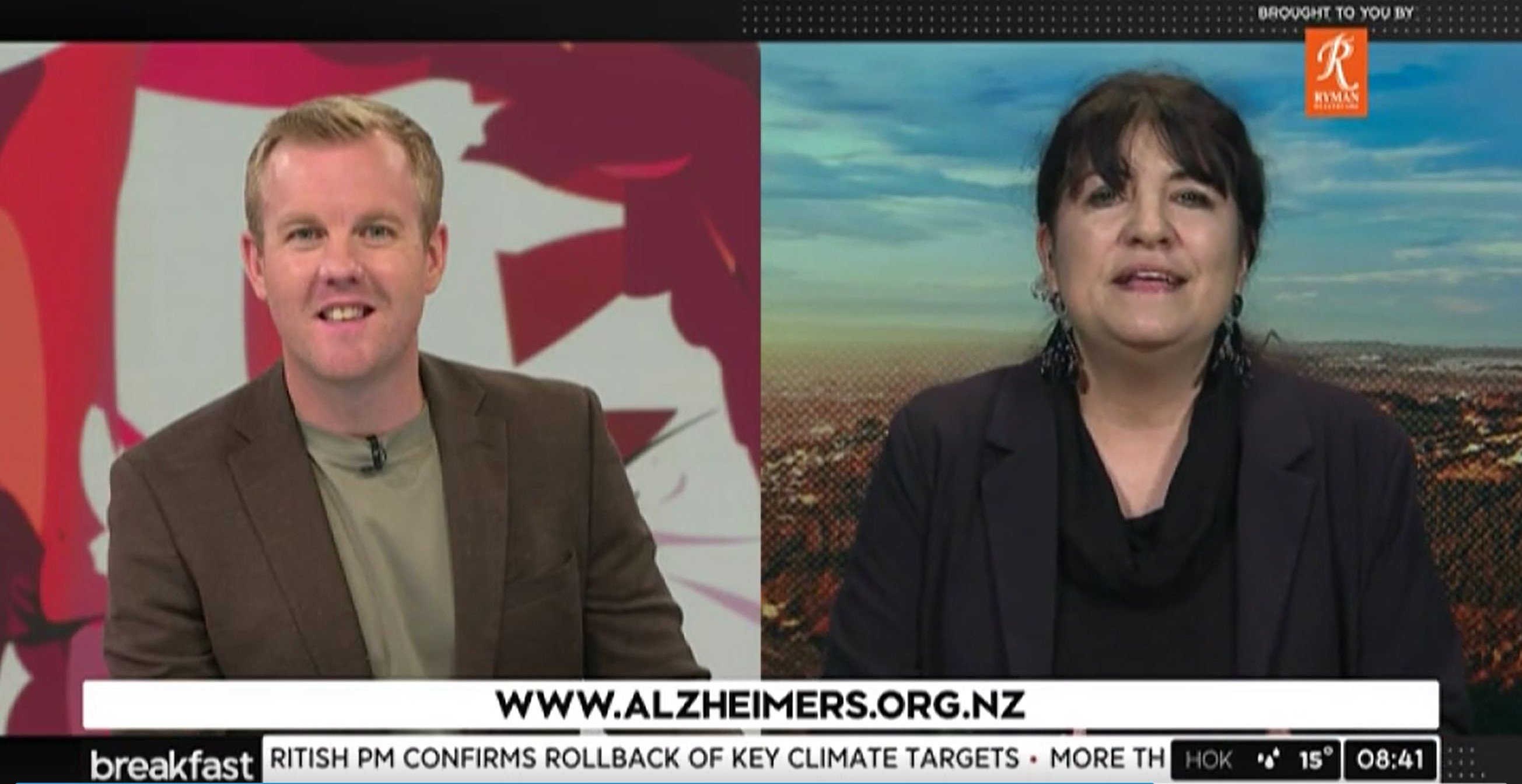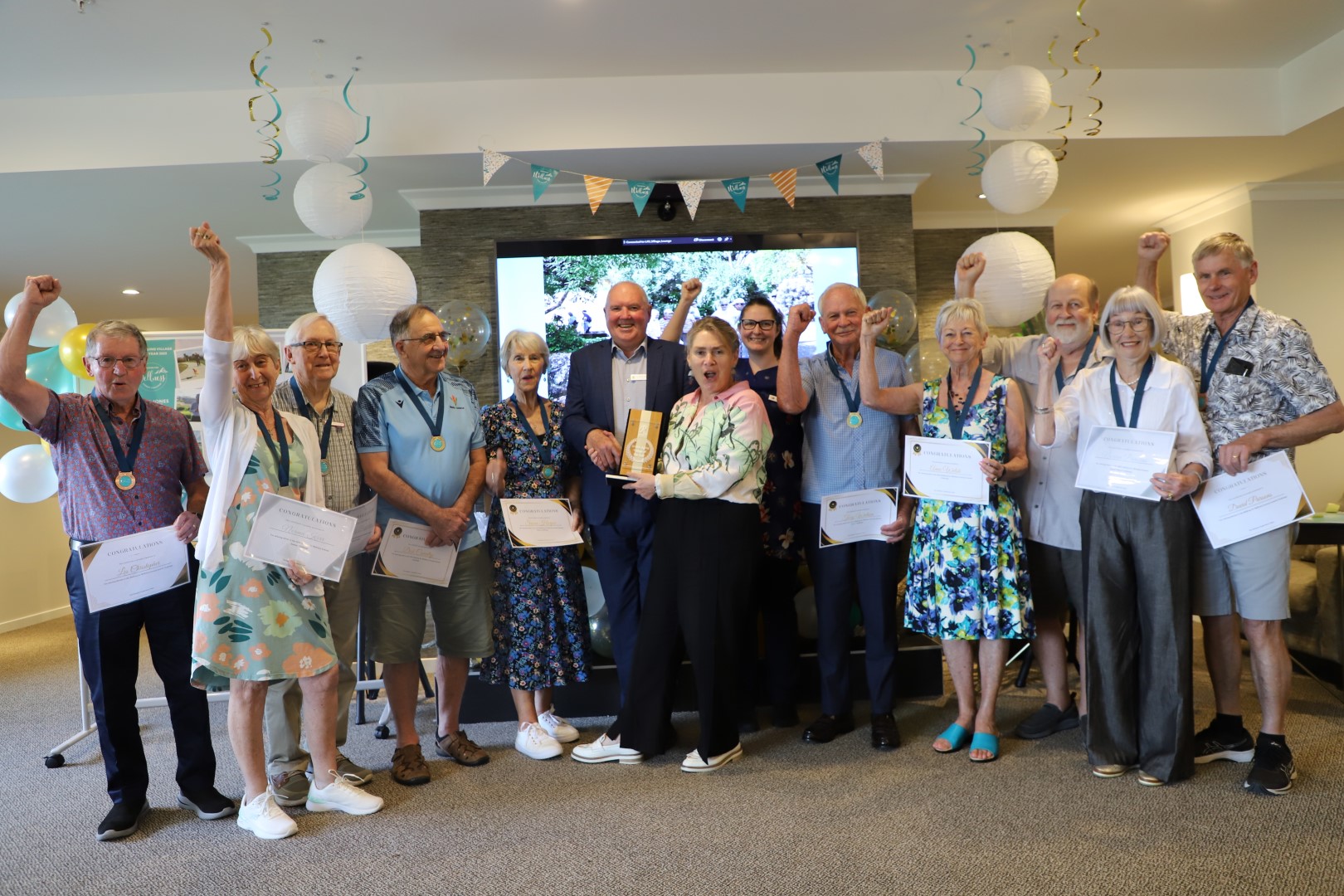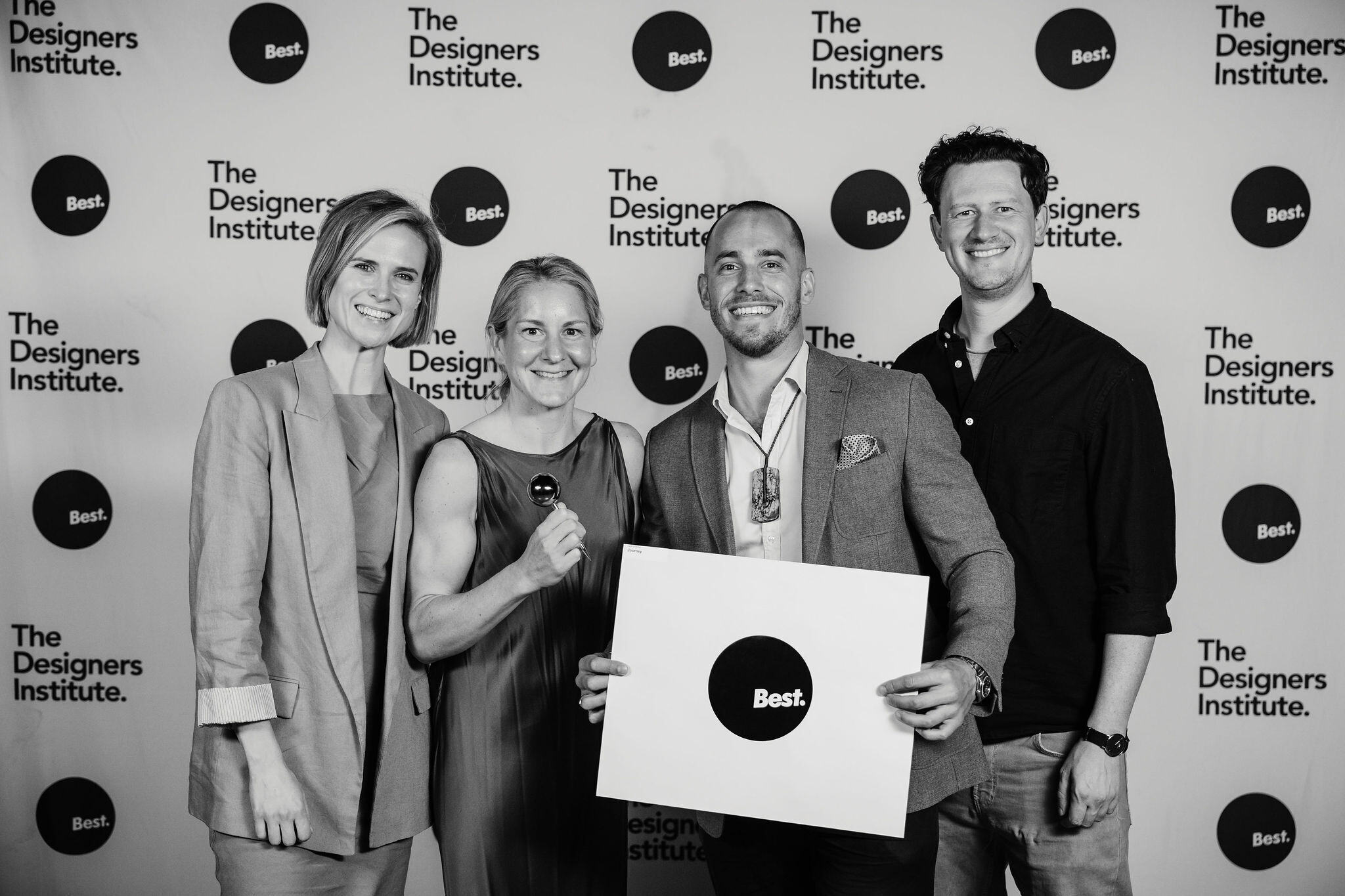Ryman's dementia thought leaders take centre stage
Ryman's dementia thought leaders take centre stage
-1.jpg?width=1440&height=1080&name=IMG_3725%20(Large)-1.jpg)
It’s been a big month for two Ryman Healthcare dementia advocates, with presentations at two high profile conferences and an interview on TVNZ Breakfast which showcased their research and knowledge.
Dementia Project Specialist Caroline Bartle and Senior Architect Sara McCunnie, who describe themselves as ‘dementia nerds’, have revealed their shared passion for their subject as part of Alzheimer’s Awareness month.
Caroline was interviewed by Matty McLean on TVNZ Breakfast last week to discuss the myRyman Life dementia care model and ways in which people can take steps to avoid or delay the onset of dementia.
“There are 12 modifiable risk factors and Ryman were early adopters of this and integrated them into their model,” Caroline told Matty.
“This is really important that we’re talking about this and educating people about this because this affects our workforce as well as the people we support,” she said.
The risk factors for dementia that people can have some control over are:
- High blood pressure
- Smoking
- Diabetes
- Obesity
- Lack of physical activity
- Poor diet
- High alcohol consumption
- Low levels of cognitive engagement
- Depression
- Traumatic brain injury
- Hearing loss
- Social isolation
- Air pollution
Caroline said hearing loss was one of the biggest modifiable risk factors: “Up to eight per cent can be reduced.

Caroline Bartle shares her insights with TVNZ Breakfast's Matty McLean.
“And obesity is a huge problem here in New Zealand and we can do something about obesity if we can actually tackle it through that period,” she said, referring to the ages of 45-65.
“Our brains are beautiful, we can’t see them but they are beautiful. We can see our skin so we look after our skin but we don’t look after our brains, but the way we live our lives now has a big impact on our future.”
Caroline Bartle
Dementia Project Specialist
Earlier in the month, Sara attended the NZ Association of Gerontology conference, themed ‘Rethinking ageing’, to help bring attention to her upcoming doctorate study based on retirement village typology, the stressors on the comprehensive retirement village design and how we need to respond to them.
At the Alzheimer’s New Zealand conference last week, the theme of which was ‘Repositioning dementia’, Caroline paired up with Sara to highlight the way dementia care has evolved in New Zealand and ask whether it was still fit for purpose whilst offering some alternative approaches.
.jpg?width=1440&height=1080&name=IMG_3727%20(Large).jpg)
Caroline and Sara paired up at the Alzheimer's New Zealand conference.
“What does the secure in ‘secure unit’ actually mean?” Caroline asked. “Does our fixation on physical safety overshadow the importance of psychological security?
“Do we truly desire ‘secure units’ or is it security we seek? These are qualitatively different, and these nuances matter deeply.”
Caroline argued that when considering individuals living with dementia and how we approach risk management, we should equally prioritize both physical and psychological well-being.
“This is a human rights issue,” Caroline said, adding that the pandemic had perhaps provided us with a new lens to look through.
“We all now have some idea of what it must be like to be restricted, to have our freedom of movement dictated by others. We all understand the importance and value of the simple things – freedom, control and fresh air,” she said.
Last year, Sara travelled to Belgium and the Netherlands to explore alternative ways of providing care for people living with dementia and was struck by the settings that encouraged positive risk taking, meaningful activities in authentic settings such as farms, gardens, and coffee shops, and clever use of technology to keep people safe, such as geo-tracking systems.
The result? More open settings and unlocked doors.
.jpg?width=1620&height=1080&name=IMG_8375%20(Large).jpg)
Sara displayed her poster at the NZ Association of Gerontology conference.
“When the setting is compelling and satisfying, people want to live their life there. Here walking was about exercise or pleasure and not about seeking escape,” said Sara.
She added: “The joy and agency experienced by the people living with dementia was palpable and infectious. I came back full of hope for what we can achieve here in New Zealand.”
The brief was to ask the tough questions, and the pair certainly did that, with their thought-provoking presentation prompting a great deal of positive feedback.
Attending the conference was Karen Lake, a former Regional Operations Manager for Ryman with a special interest in dementia, who said Sara and Caroline’s passion, focus and expertise ‘blew her away’ and left many of the attendees ‘considering whether being ‘risk adverse’ detrimentally affects a person’s rights and what is the balance between this and quality of life’.
She said: “Their work will break down barriers and shift us into a future where we have to think and act differently for the betterment of society. It’s inevitable.”
by Maryvonne Gray | Sep 29, 2023
Subscribe to our blog newsletter
You May Also Like
These Related Stories

Ryman’s Bee-Friendly Village

Linda Jones is Ryman’s fittest village for 2023!

